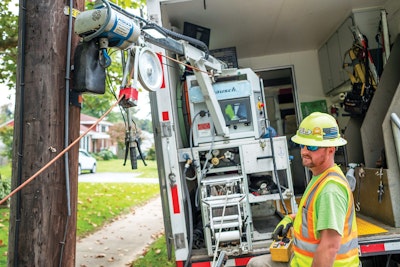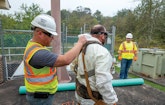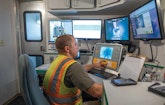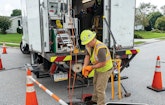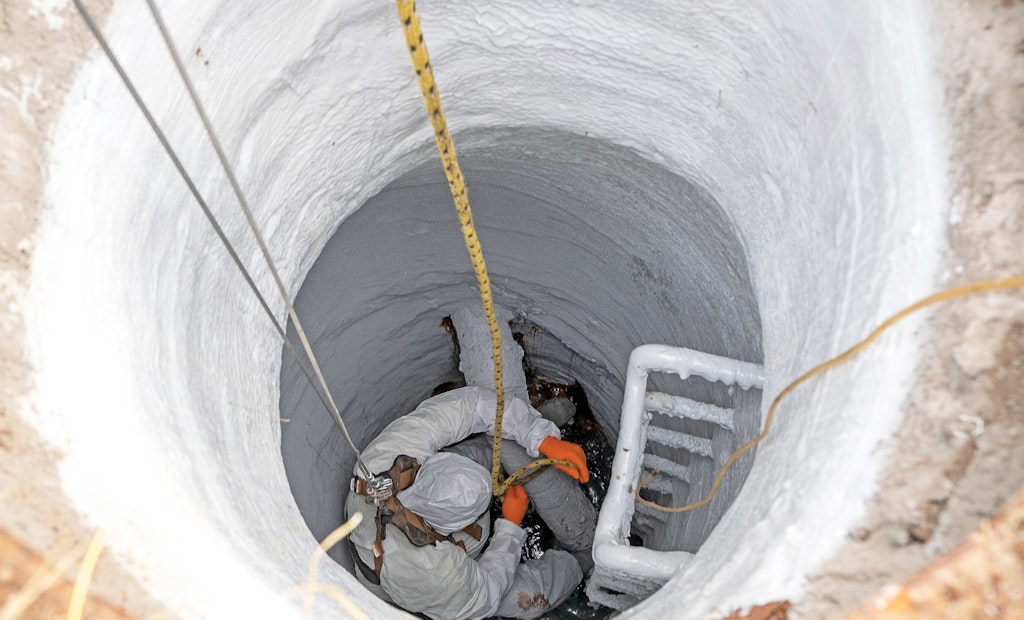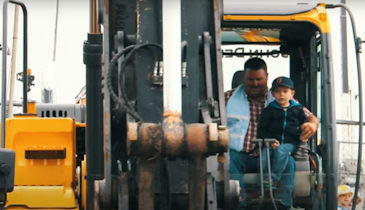Interested in Safety?
Get Safety articles, news and videos right in your inbox! Sign up now.
Safety + Get AlertsRobert Kalbach III has a name for the handful of jobs he passes on every year because of safety issues or risk:
“That job’s a hand grenade,” says Kalbach, owner of Utility Services Group. “Frequently there’s a cheap way and there’s the right way. We’re going to go ahead and tell the customer that. We’re going to be very open and honest — let the customer decide, and let our competitor try to do it. Then if they look bad, we look all that much better because we warned the customer on the front end.”
This attitude exemplifies many of the core traits that Kalbach has leveraged to double the size of his underground infrastructure company in Camp Hill, Pennsylvania.
“It’s a common challenge in the industry. There are limits to what you can accomplish,” he says. “If you think you’re invincible, that’s when you injure people, that’s when you don’t get things done the right way.”
When USG was first profiled by Cleaner in 2010, they were a small company focused on jetting and inspections.
A zero-tolerance safety policy and an honest, no-nonsense approach with customers catapulted the company from a dozen employees to 30, as their service list evolved to include a full range of rehabilitation, assessment and stormwater services.
“When you’re promising them things that you don’t know you can deliver, you create unhappy customers. A lot of people do that because there’s money to be made. On the flip side, from a culture standpoint, if you’re going to send your field guys out there to do a job that’s impossible, they won’t like you very much.”
Back for seconds
The ethos of USG isn’t getting as many customers as possible. It’s treating customers so well that they come back time after time — and the strategy is working.
“The growth probably isn’t so much the additional services, it’s the repeatability that we deliver to the customer. We provide solutions, and no B.S.,” Kalbach says. “If someone calls in here and they have something that’s not possible or very complex, or very dangerous, we’re not going to waste time if they want a cheap approach. We’d rather be upfront with people.”
While many companies take on any job that comes their way before they even know the details, USG has chosen a different way, and it seems customers are seeing value in it.
Rather than risk a potentially embarrassing misstep by taking on more than they can chew, they choose their jobs with care, investing time and effort on the front end to ensure jobs fit their criteria.
By the same token, when a customer takes a cheaper bid from another contractor that can’t step up to the plate, USG is always ready to pick up the slack.
“When that phone call comes in from a potential customer that says, ‘Your competitor dropped the ball on us,’ everybody in here gets excited,” Kalbach says. “We tell our field guys, ‘You’re going out there to be the white knight.’”
There’s no taking chances with subpar equipment either. Kalbach buys all new and replaces equipment as soon as the team thinks it’s time. With a backbone of inspection work, USG has a variety of camera equipment from RauschUSA, Aries Industries, CUES and RIDGID, in addition to jet/vac trucks from Super Products and GapVax.
“We try to give our guys the best equipment we can give them because the work is hard enough without fighting your equipment all day,” he says. “If you run trucks and don’t maintain them and don’t worry about replacing them when necessary, it’s very frustrating for the men, and the customers.”
The company has even acted as a pro bono consultant, knowing that customers will appreciate their honest assessment of a problem; and if they can come up with a solution, even if it doesn’t mean getting hired for a job, the customer will remember it.
“We view our time as valuable, and it’s not just about making money, it’s about solving problems for our customer,” Kalbach says. “In this world, they appreciate that because time is money.”
Zero tolerance
It wasn’t easy for USG to develop a culture that prioritizes ethics and safety while remaining profitable. It took sacrifice.
“We have a core philosophy that if we catch somebody breaking our confined-space policy, they’re going to be fired on the spot. And unfortunately, we’ve had to fire several good employees because they broke our confined-space policy,” Kalbach says. “It’s a very painful thing, especially when you consider that the individual was just trying to make money for us. He’s trying to meet production; that’s a hard thing to balance.
“When we revamped our safety policies, we included everyone. We openly acknowledge what needed to change and even went through several ‘retrainings’ when an employee made an honest mistake or truly didn’t understand a new policy.”
The policy started after a series of injuries and close calls prompted Kalbach to re-examine the way they were doing business.
“We always had a safety program, but the line on being safe and making money — frequently you’ve got to pick one. We were faced with: Well are we going to lose money or are we going to cut the corner on safety? That was a really tough thing,” Kalbach says. “We were always on the good side of that line; we lost money on a few jobs.”
The stricter safety policy forces everyone to look at what they do, how they do it and hold each other accountable to the highest level of safety. Though it can be harsh, the proof is evident: USG has gone over three years with no lost-time injuries. In order for the policy to be successful, the company also fostered a culture where employees were encouraged to report and even halt work if it was unsafe.
“Crews need to know we have their back. That if there’s a safety issue, we expect them to stop work and call to resolve the safety issue,” Kalbach says. “We don’t want them to just shut up and keep their heads down; we want them to bring that up.”
In order to promote self-policing behaviors on the job, USG hands out big rewards. As a thank-you when the company reached yearly milestones with no injuries, the company sponsored special celebrations for employees and their families. They also provide generous bonuses and salaries while making it clear that those perks are tied to performance.
Building a culture
“I view anybody on a crew as a leader in this company. So the leadership team includes my equipment operators,” Kalbach says. “What makes that cool is we allow them to run their job site and do their job, and they’re accountable.
“I think it’s a culture thing. The guys learn that if they do a good job: one, their pay increases and bonuses will be reflective of that, but two, if they do a good job, that’s work stability for them because the customer’s going to invite us back and therefore the guy who does that job is going to have a job next year.”
Ultimately, principles are meaningless if the business isn’t profitable enough to stay afloat, so getting everyone on the same page is huge for USG. Kalbach invests in sending employees to leadership and safety training events and conducting in-house training throughout the year.
Giving the employees a stake in the success of the company gives them a reason to uphold the ideals of the company, which in turn, customers see and appreciate. Though safety is perhaps the most visible aspect of this philosophy, Kalbach says that in the minds of customers, a safe company is also a reliable company.
“When they see companies that really, truly care about safety, that’s something they can evaluate,” Kalbach says. “It gives them a picture of what the inside of this company looks like, all the things that they don’t see. Because if we do safety really well, you have to assume we’re doing everything else really well.
“Everybody’s got to win,” he says. “And if everybody’s not winning, there’s a problem. That’s really been a big thing we talk about — what’s the win-win here? Ideally, the win is a three-way win: it’s the company, it’s the employee, and it’s the customer.”
Part of the family
Owners often claim “family business” status, but Robert Kalbach III shows it.
When a fire drove an employee out of his house days before Thanksgiving, the company had his back, putting him up in a hotel for the holidays while the damage was repaired.
It’s one of many anecdotes that proves Utility Services Group’s core philosophy — treat your employees right, and they will grow the business for you.
“The guys being happy and motivated, the guys feeling that they’re not just a number, they’re part of a team, the leaders of the company — the men who go do the work for the customer feel that it’s a family business,” Kalbach says. “I think with that approach, the customer is going to keep calling us for future work.”
